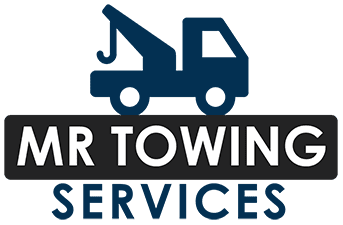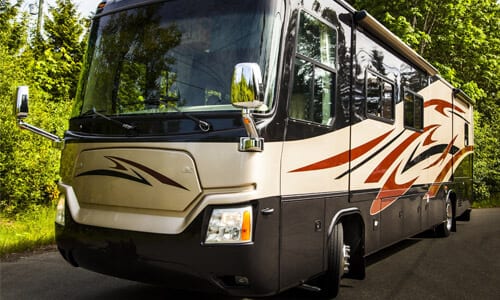RV Towing
RV Towing Service
So many of us strive to be the family that travels. Not just traveling for the sake of destination, but for the path that reaches the destination. Perhaps you envision driving up and down the Rocky Mountains with your wife sitting to your right and your camper attached at the rear of your truck. Once the destination is reached, the two of you will hang out, take in the views, and enjoy all that mother nature has to offer. In order to get to that point, you must travel safely.
That means protecting you and your significant other, protecting your belongings, and protecting your vehicle or vehicles. If you are partaking in RV towing, there many precautions to take before hitting the long, curvy road. Here are several them…
Can your vehicle handle the load?
First and foremost, you want to ensure your vehicle is capable of towing an RV. Owning a truck or SUV doesn’t automatically qualify the towing of an RV. No, you must check the specific towing capacity located in the vehicle manual. In case you lost track of your manual, there are also plenty of online resources that will give you a specific number.
It’s important to understand that gross vehicle weight rating (GVWR) accounts for the weight of the vehicle at the time of travel. Thus, the weight of any aftermarket vehicle parts should be factored in, along with the weight of any items inside either vehicle. To put it simply, any weight added to the vehicle subtracts from the towing capacity.
You also want to prevent the RV from being backloaded. Keep a weight balance or else too much pressure will be placed on one area, potentially causing the RV to tailspin. If your RV tailspins, your vehicle is probably going with it.
Always complete a pre-trip inspection
Towing is nothing to take lightly (no pun intended). Any malfunction can lead to all sorts of misfortune. That’s why it’s so important to execute a pre-trip inspection. Make sure all connections are secure, nothing is dragging on the ground, and the towing weight is not beyond capacity. SAFETY FIRST!
If you are first time in RV towing, it’s wise to go on a trial run. Tow it around the block a few times and work your way up to a highway. You want to feel comfortable and confident that you will make it to your destination and back without running into any problems whatsoever.
As part of the inspection, check your tire pressures as well. Your tires, for both your vehicle and RV, will go through a lot traveling across any part of the country. Obviously, you want to ensure they are up to the task.
If you know you’ll be traveling through great heat, it may be a good idea to deflate the tires ever so slightly from their recommended psi. Reason being, tires tend to expand some when met with high surrounding temperatures. You can reverse the tire handling if traveling through very cold climates. Just don’t go to any extremes.
Make the most of important safety features
It’s ideal to be able to control a trailer just as you do your vehicle. That’s why break controllers exist. When you press on your vehicle brakes, the trailer breaks will be triggered; thus, keeping both units in unison.
You can purchase proportional break controllers or time delayed break controllers. The former enables each unit to break at the same time with the same pressure, while the latter programs a specific amount of power to go to the trailer breaks. Time delayed breaks can be adjusted based on the weight being carried. Any vehicle towing something as large and heavy as an RV should have the aid of break controllers. They are even required by law in some states.
In addition, it’s a good idea to install mirrors specific to towing. Tow mirrors are larger and wider than traditional mirrors. Beneath the ordinary reflection will be a small section made up by a wide angled reflection. Of course, the purpose of a tow mirror is to give the driver and passengers a full-length look of the trailer and the object being towed. You can keep a close eye and ensure the RV is traveling safe.
Drive logically
Chances are if you’re towing an RV then you’re not in any kind of rush. So…
- Drive like you’re not in a rush! Try to keep a safe distance from cars in front so you can avoid laying on the brakes.
- Prepare your vehicle for the conditions you will be facing throughout the trip. For instance, if you’re going to be driving through the mountains on the West Coast, ensure your brakes can handle the grade of steep slopes.
- Use those blinkers! Again, the last thing you want is for your vacation to be slowed or stopped by a car accident. Scratch that, the last thing you want is to injure someone because you failed to look while changing lanes and your RV trailer hit the car next to you.
- Try to travel during times of limited traffic. It’s difficult to do so all throughout; however, it makes traveling with a giant RV attached to your car much easier. The less stressed out the driver, the safer he/she is going to drive.
Contact the professionals
MR Towing Services can’t tow your vehicle across the country for your road trip, but we can certainly help if your vehicle breaks down at some point on a trip. If you’re worried that we won’t be able to handle towing an RV, don’t. We have the necessary equipment to tow an RV and we’ve towed plenty of them in the past.
It would be a true bummer if a breakdown stunts your travel plans. Just know that you’re a call away from getting your car and RV to a repair facility. From there, you’ll be back on the road in no time.
Please visit mrtowingservices.com to learn more. Also, check out our blog for additional helpful tips on handling and preventing vehicle struggles.
We're fast, convenient and reliable!
Reserve by Phone
Contact Us 24/7
Reserve Online
In Just a Few Clicks
Why Us
Areas We Service
Contact Us
Our other locations in the Dallas-Ft. Worth area:
1225 Belt Line Rd
Suite 120
Garland, TX 75040
9220 Skillman St
#129-A
Dallas, TX 75243
2627 S Cooper St
Suite 102
Arlington, TX 76015
822 Custer St
Arlington, TX 76014

